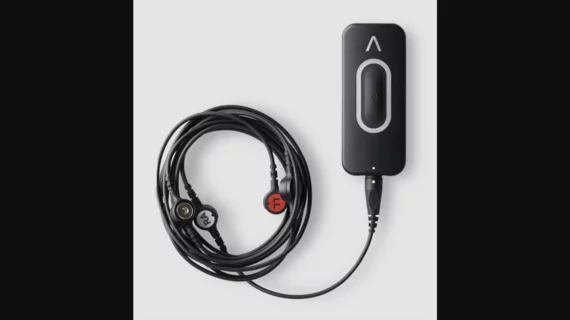Dual approvals: AliveCor gains FDA clearance for advanced AI model, handheld ECG system
AliveCor, a California-based healthcare company focused on developing on-the-go electrocardiography (ECG) devices, has gained U.S. Food and Drug Administration (FDA) clearance for its KAI 12L artificial intelligence (AI) technology and the new handheld Kardia 12L ECG System.
KAI 12L, powered by multiple deep neural network algorithms, evaluates ECG results and detects signs of 35 cardiac conditions, including 14 different arrhythmias, myocardial infarctions and cardiac ischemia. The newly approved offering was trained on data from more than 1.75 million ECGs, according to AliveCor. It can work directly with the Kardia 12L ECG system, but is also compatible with other similar devices.
“Not only is it the first FDA-cleared AI that can detect a heart attack on a reduced leadset, but it also returns determinations for our broadest range of conditions yet,” said Priya Abani, CEO of AliveCor, said in a prepared statement announcing the news.
The Kardia 12L ECG System, meanwhile, provides care teams with a handheld 12-lead device designed to be less invasive and easier to use than similar devices already available on the market. The battery-powered, pocket-sized system features a single cable with five electrodes that can acquire eight diagnostic leads during ECGs. AliveCor believes this new-look device can help the company’s technology reach more care teams—in a wider variety of environments—than ever before.
“By streamlining the process of recording a 12-lead ECG, Kardia 12L has significant implications for rapid ECG diagnosis in clinical practice,” Stavros Stavrakis, MD, PhD, a professor of cardiology at the University of Oklahoma Health Sciences Center with experience using the device, said in the same statement. “By streamlining the process of recording a 12-lead ECG, Kardia 12L has significant implications for rapid ECG diagnosis in clinical practice.”

